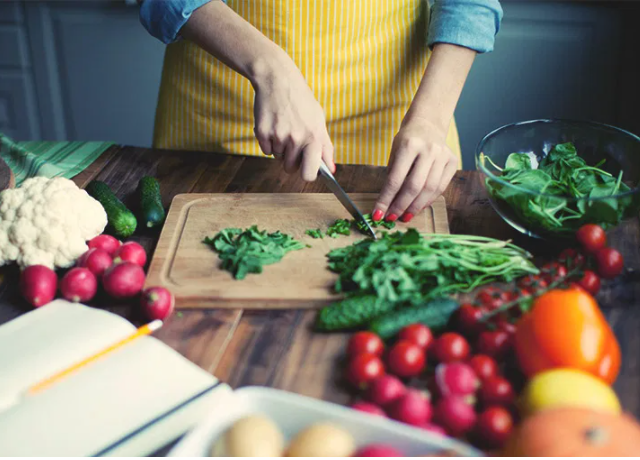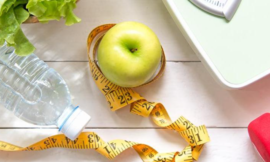An anti-cancer diet is an important strategy you can use to reduce your risk of cancer. the diet help to boost our immune system and prevent dieses. But some people have cancers risk due to genetics and environment.
But research suggest that about 70% of your lifetime risk of cancer is within your power to change, including your diet. Avoiding cigarettes, limiting alcohol, reaching a healthy weight, and getting regular exercise are all great steps for preventing cancer. Adopting a healthy diet can also play a vital role.
If you have a history of cancer in your family, then also making some changes in your lifestyle may help to prevent the risk. Although selecting cancer-fighting foods at the grocery store and at mealtime can’t guarantee cancer prevention, good choices may help reduce your risk. Consider these anti-cancer diet guidelines:
Enrich your diet with Antioxidants
Plant-based foods are rich in nutrients known as antioxidants that boost your immune system and help protect against cancer cells. A diet with high in fruit may lower the risk of stomach and lung cancer. These are the antioxidant food you must include;
- Eating vegetables containing carotenoids, such as carrots, Brussels sprouts, and squash, may reduce the risk of lung, mouth, pharynx, and larynx cancers.
- Diets high in non-starchy vegetables, such as broccoli, spinach, and beans, may help protect against stomach and esophageal cancer.
- Eating oranges, berries, peas, bell peppers, dark leafy greens and other foods high in vitamin C may also protect against esophageal cancer.
- Foods high in lycopene, such as tomatoes, guava, and watermelon, may lower the risk of prostate cancer.
Vegetables and fruits
Vegetables and fruits are highly nutrients, not only for cancer, including more veggies and fruits help to improve metabolism and feel more energetic. You can also grab any fruit instead of packed snacks.
Breakfast: Add fresh fruit, seeds, and nuts to your whole grain, low-sugar breakfast cereal (such as oatmeal).
Lunch: Eat a salad filled with your favorite beans and peas or other combo of veggies. Add lettuce, tomato, and avocado to a whole grain sandwich. Have a side of carrots, sauerkraut, or fruit.
Snacks: Grab an apple or banana on your way out the door. Dip carrots, celery, cucumbers, jicama, and peppers in hummus. Keep trail mix made with nuts and dried fruit on hand.
Dinner: Add fresh or frozen veggies to your favorite pasta sauce or rice dish. Top a baked potato with broccoli, sautéed veggies, or salsa.
Dessert: Choose fruit instead of sugary desserts.
Drink green tea

Green tea is a powerful antioxidant and may be an important part of an anti-cancer diet. Green tea, a cancer-fighting food, may be helpful in preventing liver, breast, pancreatic, lung, esophageal, and skin cancer. Researchers report that a nontoxic chemical found in green tea, epigallocatechin-3 gallate, acts against urokinase (an enzyme crucial for cancer growth). One cup of green tea contains between 100 and 200 milligrams (mg) of this anti-tumor ingredient.
Eat more fiber
Fiber, also called roughage or bulk, is found in fruit, vegetables, and whole grains and plays a key role in keeping your digestive system clean and healthy. It helps keep cancer-causing compounds moving through your digestive tract before they can create harm. Eating a diet high in fiber may help prevent colorectal cancer and other common digestive system cancers, including stomach, mouth, and pharynx.
Choose healthy fats
Eating a diet high in fat increases your risk for many types of cancer. But healthy types of fat may actually protect against cancer.
Avoid trans fat or partially hydrogenated oil found in packaged and fried foods such as cookies, crackers, cakes, muffins, pie crusts, pizza dough, French fries, fried chicken, and hard taco shells.
Limit saturated fat from red meat and dairy to no more than 10 % of your daily calories.
Add more unsaturated fats from fish, olive oil, nuts, and avocados. Omega-3 fatty acids found in salmon, tuna, and flaxseeds can fight inflammation and support brain and heart health.
Avoid sugar and refined carbs
Eating lots of refined carbs will result rapid spikes in blood sugar has been linked to an 88% greater risk of prostate cancer, as well as other serious health problems.
Instead of sugary and refined carbs opt for unrefined whole grains like whole wheat or multigrain bread, brown rice, barley, quinoa, bran cereal, oatmeal, and non-starchy vegetables. It could lower your risk for colorectal and prostate cancer as well as help you reach a healthy weight.
Limit processed and red meat
We all know that processed food is not good for our health. Many different studies have established a link between the risk of cancer and eating processed meat such bacon, sausages, hotdogs, pepperoni, and salami.
The safest strategy is to limit the amount of processed meat you consume and vary your diet by seeking out other protein sources, such as fish, chicken, eggs, nuts, and soy, rather than relying just on red meat.
Choosing healthy food is very important factor in cancer prevention and also need to consider some tips like some vegetable are more good if it consume it raw, the oil choose to cook and selecting the spices, garlic, ginger, and curry powder not only add flavor, but they add a cancer-fighting punch of valuable nutrients. Other good choices include turmeric, basil, rosemary, and coriander. Try using them in soups, salads, and casseroles.





